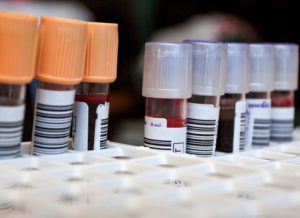
The blood test would be utilized throughout a patient’s treatment to offer “running commentary” on what is going on with tumors, which will indicate how effectively the treatment is working (or isn’t working), and if the cancer has become resistant to the treatment or not. Researchers examined 160 samples of blood from 39 cancer patients with various late-stage cancers.
The blood test filters out tumor DNA to be analyzed for genetic faults. Results of the blood test can better help doctors pick more suitable treatments for the faulty genetics.
Typically, a biopsy is taken of the tumor at the beginning of treatment but not followed-up with later on. This means doctors are out of touch with how the treatment is working and whether or not the tumor is responding. With the new blood test, doctors can have up-to-date information and change treatment when necessary.
Study lead, Johann de Bono, M.D., Ph.D., said, “Tumors and the gene faults that drive them are unique and constantly evolving. It’s crucial that we understand these changes so doctors can choose the best treatments for each patient. We need to do more research, but this approach could have a huge impact on how we make treatment decisions, also potentially making diagnosis and treatment quicker, cheaper and less invasive.”
Dr. Kat Arney, manager of Cancer Research UK, said, “Blood tests like these are the future of cancer treatment and this study proves that they can work in practice – helping us to diagnose, analyze and monitor tumors more easily. Thanks to research like this we’re developing new ways to shake the genetic foundations that underpin cancer and save more lives.”